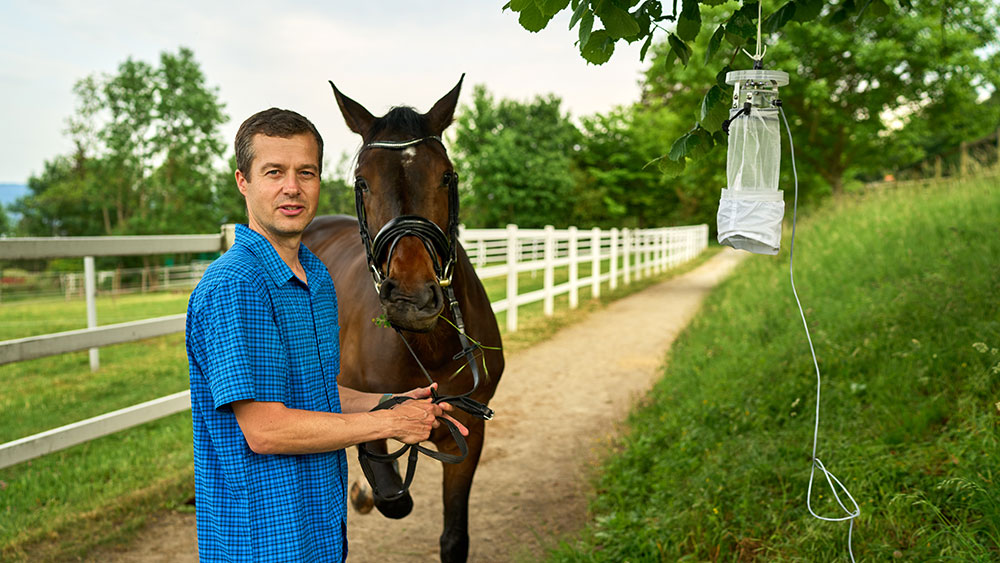Dangerous Bites

Mosquitoes are responsible for transmitting many disease-causing pathogens. In Switzerland, biting midges in particular make life difficult for sheep and horses. Entomologist Niels Verhulst researches methods to keep the unwanted insects away.
They pose a danger not only to humans, but also to animals. In Switzerland, tiny biting midges – only one or two millimeters in size – are particularly harmful to sheep, cattle and horses. These small mosquitoes are responsible for the spread of bluetongue virus in central Europe over the last 15 years. The disease affecting sheep, cattle and goats causes high fever and inflammation and in the worst case leads to death.
Until now, there was little that could be done to protect the animals from such diseases. Niels Verhulst is harnessing a strategy that is also used to protect humans: repellents that work at a distance. As part of a research project supported by a FAN award for junior researchers at the University of Zurich, Verhulst and his team are looking into various questions. Which substances are most suitable for repelling biting midges? What is the effective range of the repellents, and how long do they last? What concentration gives the best results without harming the environment and other living creatures? How should the substance be released in the first place, and what role does temperature play?